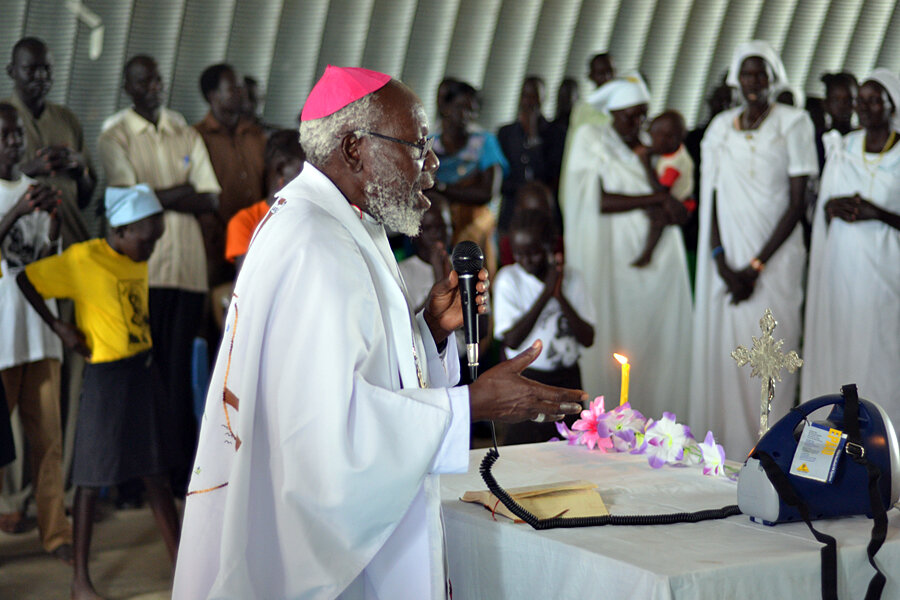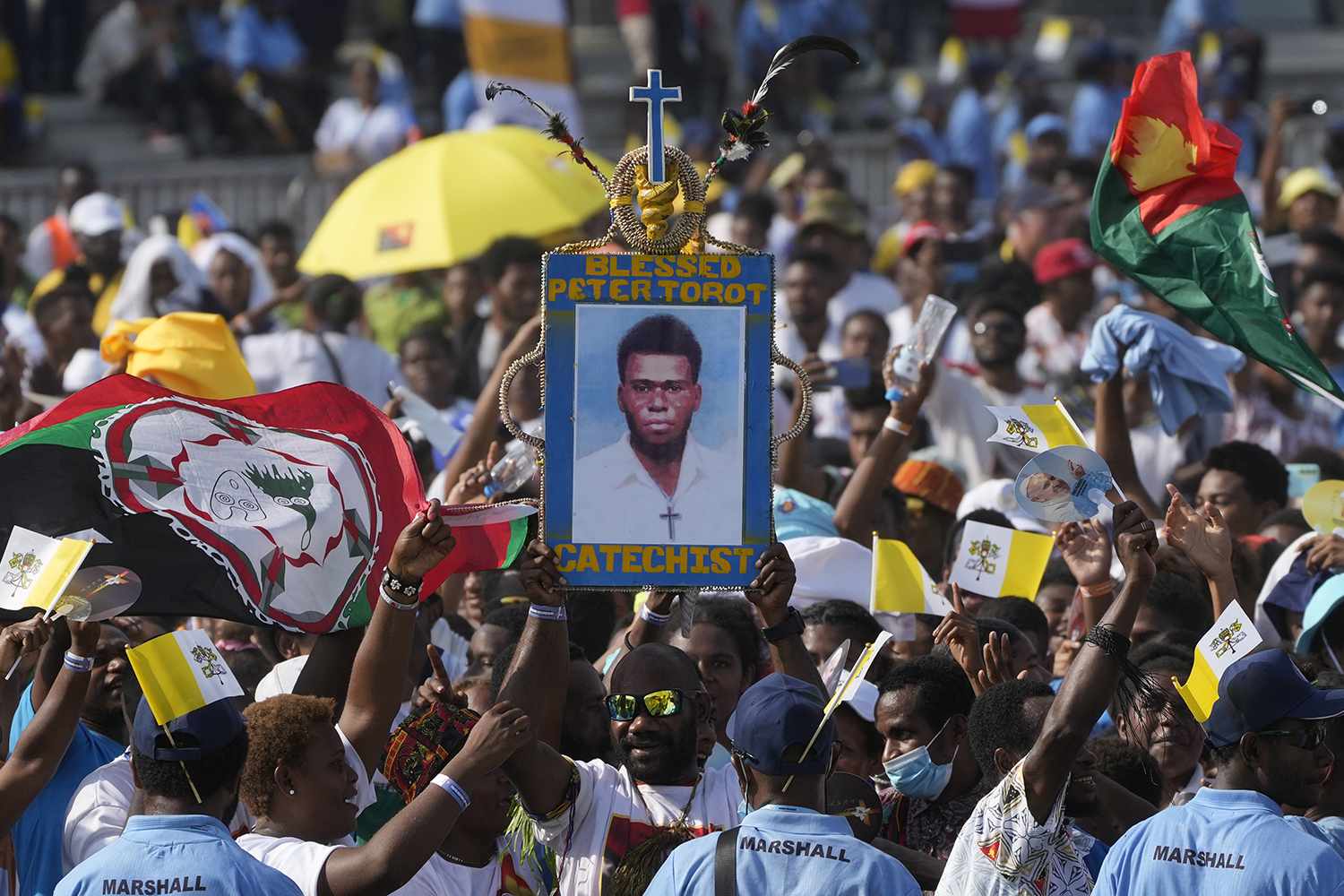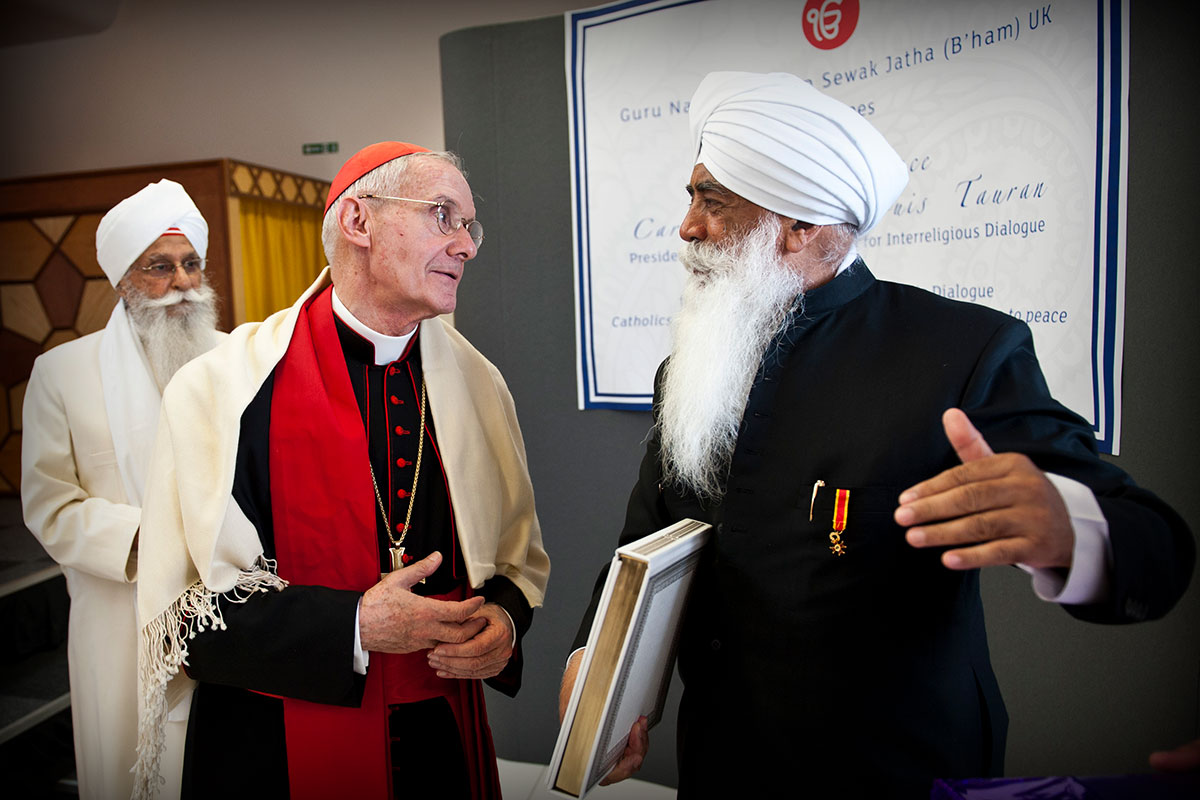Joaquim Magalhães de Castro
Speaking to the news agency Agenzia Fides, Father Peter Suleiman, the secretary general of the Conference of Catholic Bishops of Sudan and South Sudan (SSSCBC), assured that on the 27th of April, in the course of violent clashes between the forces of the Sudanese army and the paramilitary group Rapid Support Forces (RSF), at least two explosive projectiles hit the Mary Queen of Africa Cathedral in the diocese of El-Obeid.
The first of these shells hit the parish house, and the second destroyed the temple entrance and shattered all the glass in the building. A religious ceremony was held at that time, presided over by Bishop Tombe Trille. However, neither he nor the priests and faithful present there suffered any damage. Father Suleiman took the opportunity to recall that all the religious of the Catholic Church remained at their posts, except the sisters of St Francis College, who live next to an army barrack, and, for security reasons, were advised to evacuate to another location. The secretary general of the Episcopal Conference of Sudan and South Sudan says that the conflict has been destroying built heritage and depriving people of food, water and electricity, suggesting prayers for peace for all Sudanese.
While international press attention is focused on the fighting in the capital Khartoum, several other areas of Sudan are seriously affected by clashes between the army and the RSF, especially in Darfur, the stronghold of the latter.
As Dario Salvi, a journalist for Asian News, rightly argues in a text, the United Arab Emirates (UAE) created its own sphere of influence in the region by simultaneously supporting the two “generals” who made Sudan their battlefield. Abdel Fattah al-Burhan, Commander-in-Chief of the Sudanese Armed Forces, and Mohamed Hamdan Dagalo, better known as Hemeti, or Little Mohamed, head of the RSF paramilitary forces “are seen as pawns in a power struggle with a wider scope, encompassing the entire Horn of Africa.” The Italian journalist cites Andreas Krieg, an associate professor at the Department of Defense Studies at King’s College London, for whom “the history of the involvement of the United Arab Emirates in Sudan shows how a relatively small monarchy can exert an influence far beyond its geostrategic weight, with the Bani Fatima branch of the Abu Dhabi royal family delegating state activities to surrogates such as private individuals, companies, banks, merchants, militias and mercenaries.”
Although its official presence in Sudan is managed through official channels – ministries of foreign affairs and security, – shadowy networks that converge in Abu Dhabi and Dubai, which are the real intermediaries of power. The relationship with Sudan’s warlord Hemeti is especially revealing, as it is based on a web of apparently random connections and activities that, directly or indirectly, are linked to Abu Dhabi with interests ranging from capital and weapons to gold and mercenaries stationed in the UAE itself.
The discovery of thermobaric bombs purchased by the UAE in the hands of the RSF suggests that Abu Dhabi played a more direct role. Through actors in the region, UAE networks operate more or less organically, facilitating Abu Dhabi capital flows and providing infrastructure support. Dario Salvi concludes: “That’s why anyone who wants to end the fighting in Sudan, even in the United States, should use the calling code 971, because any road to Hemeti inevitably passes through the Emirates.”
It should be remembered that the activity of Roman Catholic missionaries in Sudan dates back to 1842, almost half a century before the arrival of the Anglicans and North American Presbyterians. Both would be persecuted during the various military regimes and intermittent civil wars. Anti-Christian persecutions increased after 1985, with the murder of religious leaders and the destruction of villages, churches, hospitals, schools and missions stations. Despite persecution, however, the number of Sudanese Christians has increased from 1.6 million in 1980 to 11 million in 2010. A 2015 study estimates that around 30,000 Muslims have converted to Christianity. And this, despite the fact that some interpretations of Muslim law in Sudan do not recognize conversions outside of Islam, even considering apostasy and marriages with non-Muslims to be crimes.
In fact, Sudan is one of the most hostile nations to Christians: freedom of religion is systematically violated. In 2011 – before South Sudan’s independence – around 2,009, 374 Sudanese practiced Roman Catholicism, mostly in the south (5% of the population was devoutly Catholic). Having the former slave Saint Josephine Bakhita, canonized in 2000, as their patroness, Sudanese Catholics congregate in nine dioceses, two archdiocoses and five cathedrals.
On his visit to the country in February 2023, Pope Francisco called for an “end to ethnic hatred” through powerful messages of peace and reconciliation, and calling for the immediate laying down of arms. The visit was well received by the mostly Christian population (anxious for change in a country in permanent conflict and need), but unfortunately the cry of the Holy Father was futile. And once again they have plunged into a fratricidal conflict.


 Follow
Follow


